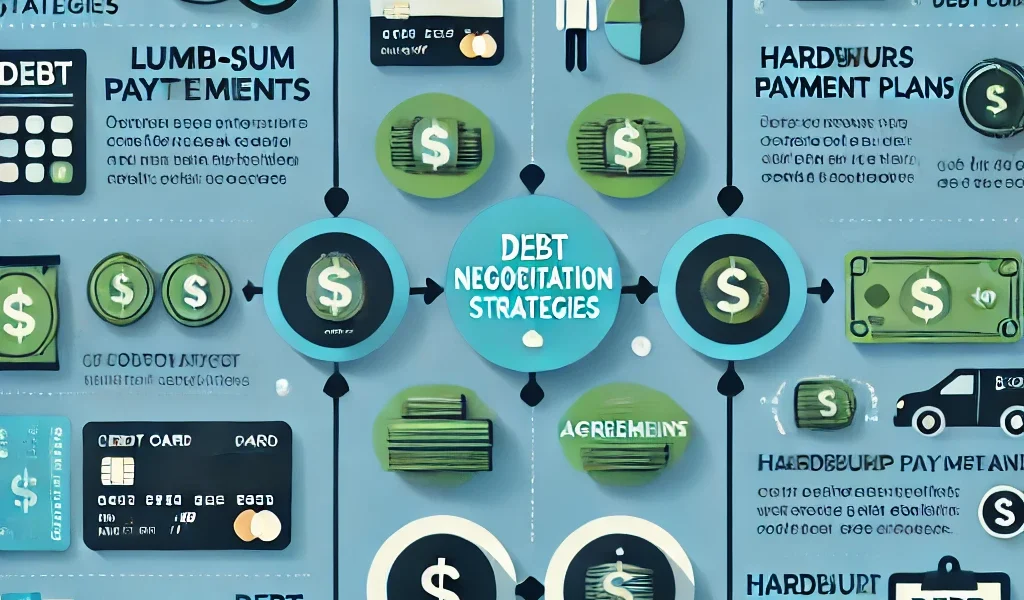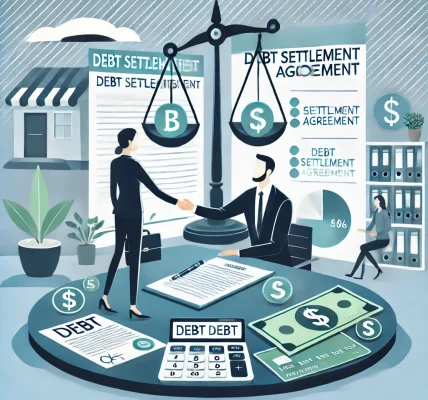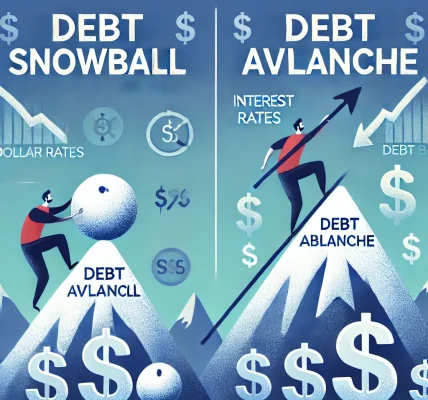Managing debt can be stressful, but negotiating and settling your debt effectively with creditors can help you regain financial stability. Whether you’re facing overwhelming credit card balances, personal loans, or medical bills, knowing the right strategies can significantly improve your chances of securing a favorable settlement.
In this guide, we’ll walk you through practical steps to negotiate with creditors, explore settlement options, and protect your financial future while avoiding potential legal risks.
Understanding Debt Settlement and Negotiation
Debt settlement is the process of negotiating with creditors to reduce the total amount you owe in exchange for a lump-sum payment or a structured repayment plan. It differs from debt consolidation, which combines multiple debts into a single payment, usually with a lower interest rate.
Why Would Creditors Settle?
- Creditors prefer receiving a portion of the debt rather than risking non-payment.
- They want to recover funds quickly instead of pursuing lengthy collection efforts.
- Creditors may settle to avoid legal action or bankruptcy filings.
Step-by-Step Guide to Negotiating and Settling Debt
1. Assess Your Financial Situation
Before reaching out to creditors, take stock of your financial situation:
- List all outstanding debts, including balances, interest rates, and due dates.
- Determine how much you can realistically afford to pay.
- Identify assets that could be liquidated if necessary.
- Review your credit report for errors or outdated information.
2. Understand Your Rights
Consumers are protected under the Fair Debt Collection Practices Act (FDCPA), which limits how debt collectors can interact with you. Key protections include:
- The right to request debt validation before making payments.
- Protection against harassment, threats, or misleading information.
- The ability to dispute incorrect debt information.
3. Decide on a Negotiation Strategy
There are three common approaches to negotiating debt settlement:
a) Lump-Sum Settlement
- Offer to pay a percentage of the total debt upfront (e.g., 30%–50%).
- Creditors may agree to settle quickly if they believe it’s their best option.
b) Hardship Payment Plan
- Request a temporary reduction in monthly payments.
- Provide proof of financial hardship, such as medical bills or unemployment records.
- May not reduce total debt but eases short-term financial strain.
c) Debt Consolidation or Management Plan
- Work with a credit counseling agency to negotiate reduced interest rates.
- Consolidate multiple debts into a single, manageable payment.
4. Contact Your Creditors
How to Approach Creditors:
- Remain polite and professional.
- Be honest about your financial situation.
- Start negotiations by offering a reasonable settlement amount.
- Get any agreements in writing before making payments.
Example Negotiation Script:
“Hello, my name is [Your Name], and I’m calling regarding my outstanding balance of [$X] on my [Credit Card/Loan Account]. Due to financial hardship, I’m unable to pay the full amount, but I’d like to discuss settlement options. I can offer [$X] as a lump sum or arrange a structured payment plan. Can we work together to find a solution?”
5. Get the Agreement in Writing
Before making any payments, ensure that you receive a written agreement detailing: ✔ The agreed settlement amount. ✔ The deadline for payment. ✔ Confirmation that the debt will be reported as “paid in full” or “settled.” ✔ A clause preventing future collection efforts.
Mistakes to Avoid When Negotiating Debt
🚫 Ignoring Your Debt Until It Escalates: Delays can lead to lawsuits or wage garnishments. 🚫 Accepting Verbal Agreements: Always get written proof of any settlement. 🚫 Paying First Without a Signed Agreement: Protect yourself from additional collection attempts. 🚫 Disclosing Too Much Personal Information: Avoid giving details that creditors can use against you. 🚫 Falling for Debt Settlement Scams: Work with reputable agencies and verify credentials before paying fees.
Alternatives to Debt Settlement
If direct negotiation fails, consider these alternatives:
- Debt Management Plan: Work with a credit counseling agency to reduce interest rates and create a structured repayment plan.
- Debt Consolidation Loan: Merge multiple debts into one loan with a lower interest rate.
- Bankruptcy (Last Resort): Chapter 7 or Chapter 13 bankruptcy can help eliminate or restructure debts but may impact your credit for years.
Final Thoughts: Regain Control Over Your Finances
Debt negotiation can be a powerful tool for managing overwhelming financial obligations. Whether you opt for a lump-sum settlement or a structured payment plan, the key is to stay informed, communicate effectively with creditors, and protect your financial future




